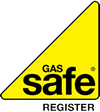Domestic Gas
- What should I do if I suspect an appliance is unsafe?
- Why should I use a Gas Safe Registered engineer?
- How do I know if an engineer is Gas Safe Registered?
- Should I always follow the advice of a Gas Safe Registered engineer?
- Does HSE recommend the use of carbon monoxide alarms?
- Why are ventilation and flues so important?
- What should I do if my question isn't answered on any of your FAQ pages?
What should I do if I suspect an appliance is unsafe?
It is illegal for anyone to use a gas appliance if they suspect it is unsafe. Turn the appliance off and do not touch it until it has been checked by a Gas Safe registered engineer.
If you suspect there is a gas leak you should immediately do the following:
- Call National Grid's Gas Emergency Freephone number: 0800 111 999
- Open all the doors and windows
- Shut off the gas supply at the meter control valve (if you know where it is)
Why should I use a Gas Safe Registered engineer?
Anyone employed to work on gas appliances in domestic premises must be a Gas Safe Registered engineer and competent in that area of gas work. By using a Gas Safe Registered engineer you can be sure that any work completed by a Gas Safe Register technician will be done competently and safely.
HSE advises that you should arrange for regular maintenance and an annual safety check to be carried out on your gas appliances and installation by a Gas Safe Registered engineer. Landlords have a legal duty to ensure that this is carried out.
How do I know if an engineer is Gas Safe Registered?
All Gas Safe Registered engineers carry ID cards which tell you which appliances they are qualified to work on.
Should I always follow the advice of a Gas Safe Registered engineer?
If your engineer recommends that more work needs to be done on your appliance always follow the advice given. If you have doubts over the advice follow it in the interim period and contact Gas Safe Register for further advice.
Does HSE recommend the use of carbon monoxide alarms?
HSE strongly recommends the use of CO alarms as one useful precaution to give advance warning of CO in property. Importantly, alarms should not be regarded as a replacement for regular maintenance and safety checks by a Gas Safe Registered engineer. CO alarms cost between £20 and £30 and can be purchased in most hardware shops. Before purchasing a CO alarm, always ensure it complies with British Standard EN 50291 and carries a British or European approval mark, such as a Kitemark. CO alarms should be installed and maintained in line with the manufacturer's instructions.
Why are ventilation and flues so important?
To help operate safely, all gas appliances need the following:
- An adequate supply of air to help the complete combustion of gas;
- efficient operation of their flue to remove any combustion products, including carbon monoxide (CO), that are produced
Without these safety precautions dangerous levels of carbon monoxide can build up with the possibility of fatal consequences. There are some easy ways to help avoid the build up of carbon monoxide poisoning:
- never block ventilation;
- ensure that flues are kept clear at all times;
- Have your appliance regularly maintained and annually serviced by a Gas Safe Registered engineer.
What should I do if my question isn't answered on any of your FAQ pages?
If you have any queries relating to domestic gas safety not answered on this website, your first point of contact should be HSE's Gas Safety Advice Line on 0800 300 363. They will be able to direct your question to the most appropriate source of expertise from within the HSE. They are open 8am-8pm Monday- Friday and 10am-4pm on a Saturday.
Alternatively, you can choose to contact them by email at hse.infoline@connaught.plc.uk, submit your query online[2] or write to them:
HSE Infoline
Caerphilly Business Park
Caerphilly
CF83 3GG







